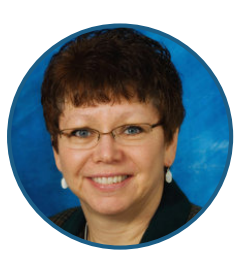Exploring Home Buying Savings Options: FHSA, HBP, and TFSA (Canada)
Tue, 02 Jan
Buying a home in the Edmonton area is a significant milestone, and saving for a down payment is a critical step. Canadians/Edmontonians have several saving options, each with its benefits and considerations. Here’s a breakdown of three popular choices: the First Home Savings Account (FHSA), Home Buyers’ Plan (HBP aka RRSP), and a Tax-Free Savings Account (TFSA).
First Home Savings Account (FHSA)
The First Home Savings Account (FHSA) in Canada is a tax-advantaged savings account designed to help individuals save for their first home. This account aims to make homeownership more accessible by providing significant tax benefits for first-time homebuyers.
Pros:
- Contributions are tax-deductible, and withdrawals (including investment income) for qualifying first home purchases are tax-free.
- Offers flexibility and significant tax advantages for first-time homebuyers.
Cons:
- The annual contribution limit is capped. The annual contribution limit for the First Home Savings Account (FHSA) has been $8,000 in recent years, and there is a lifetime contribution limit of $40,000.
- Specifically designed for first-time homebuyers, limiting its use for others.
Home Buyers’ Plan (HBP)
The Home Buyers’ Plan (HBP) is a program in Canada that allows individuals to withdraw from their Registered Retirement Savings Plans (RRSPs) to buy or build a first home, without immediate tax penalties.
Pros:
- Allows you to borrow up to $35,000 from your RRSPs to buy or build a first home, interest-free.
- A repayment period of 15 years gives ample time to return the funds.
Cons:
- Requires repayment, otherwise, it is added to your taxable income.
- Using RRSP funds can interrupt the growth of your retirement savings.
Tax-Free Savings Account (TFSA)
A Tax-Free Savings Account (TFSA) is a flexible investment account in Canada that allows contributions to grow tax-free. Withdrawals can be made at any time for any purpose, also tax-free. It’s available to individuals 18 and older with a valid Social Insurance Number. While contributions are not tax-deductible, the account offers significant tax advantages, especially for long-term savings and investment growth.
Pros:
- Contributions aren’t tax-deductible, but investment growth and withdrawals are tax-free.
- Offers flexibility; funds can be withdrawn anytime for any purpose, including a home purchase.
Cons:
- Annual contribution limits may restrict how much you can save over time.
- Doesn’t offer the same direct home-buying incentives as FHSA or HBP.
When considering these options, think about your timeline for buying an Edmonton home, your current and future tax situation, and how much you can save. Consulting with a financial advisor and an Edmonton mortgage broker can also provide personalized advice tailored to your specific circumstances. Whichever path you choose, start early and review your strategy regularly to keep your home-buying dream on track.
Did you know we offer complimentary Home Buyer consultations to talk about your unique goals and desires? Based on where you are at in the process, we can also connect you to top-tier professionals who can further guide you in getting ready to become a homeowner.







 Over the last week, we have spoken with a few of our mortgage specialists to gain a better understanding of how the mortgage changes may affect you. Due to the updates, a homebuyer may not qualify for as high of a mortgage as they previously could.
Over the last week, we have spoken with a few of our mortgage specialists to gain a better understanding of how the mortgage changes may affect you. Due to the updates, a homebuyer may not qualify for as high of a mortgage as they previously could.